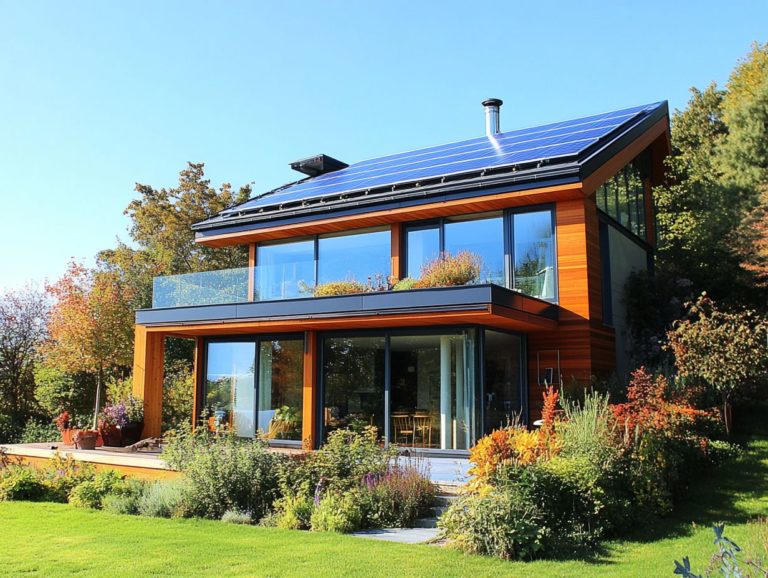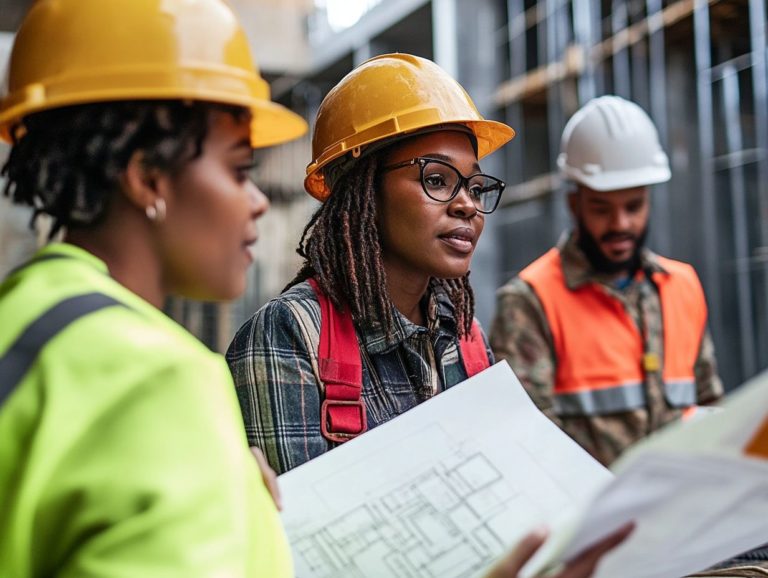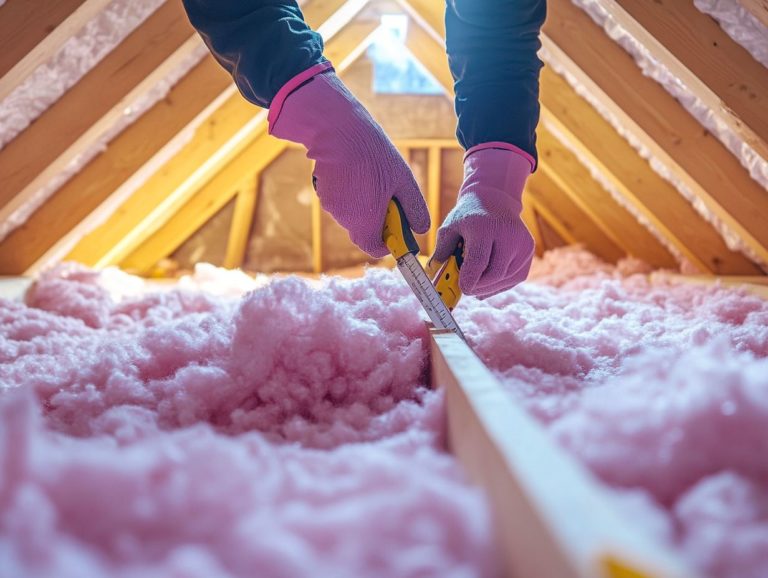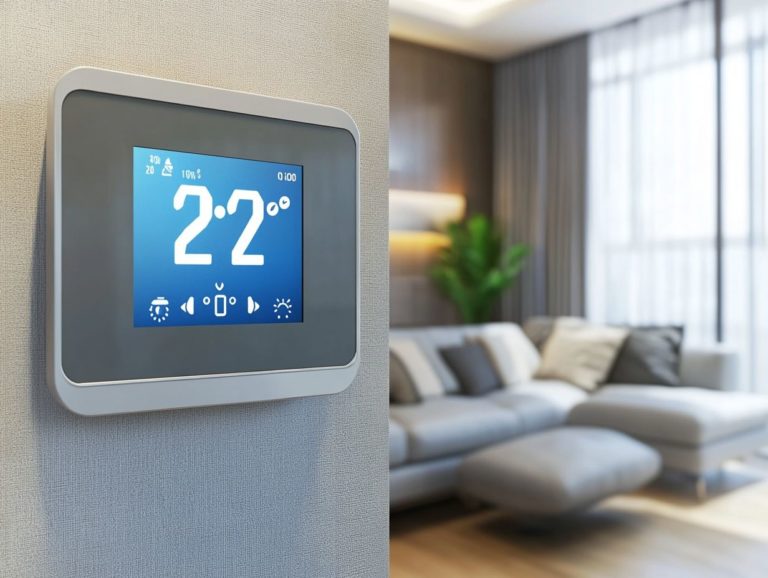How to Find Local Energy Auditors?
Are you seeking to enhance your home’s energy efficiency and trim down those utility bills? An energy auditor can be your greatest ally in this pursuit.
Get ready to dive into an exciting guide that unveils the benefits of energy auditors! This guide offers a comprehensive overview of energy auditors, detailing their roles and responsibilities along with the advantages of hiring a local expert.
Discover how to locate qualified professionals, what factors to weigh when making your selection, and how to prepare for the audit itself. Let s unlock the secrets to transforming your home into an energy-efficient haven today!
Contents
Key Takeaways:

Hiring a local energy auditor can bring many benefits, such as their expertise and knowledge of local regulations and resources. When searching for a local energy auditor, make sure to research and get referrals from trusted sources to ensure their qualifications and experience.
During an energy audit, be prepared to ask questions and gather key information to make the most of the process and ensure accurate results.
What is an Energy Auditor?
An energy auditor is a skilled professional who carefully examines your home or business’s energy consumption, uncovering opportunities for enhancing energy efficiency. This expertise not only helps you understand how to lower your energy bills but also elevates your overall comfort.
During a comprehensive energy audit, they inspect heating, ventilation, and air conditioning systems, assess insulation, and analyze carbon monoxide emissions to ensure compliance with regulations, such as the Washington State Energy Code.
Equipped with advanced diagnostic tools, energy auditors deliver tailored, actionable recommendations that address the unique needs of your property, ultimately guiding you towards a more sustainable future.
Role and Responsibilities
The primary role of an energy auditor is to conduct thorough energy audits that assess your energy consumption patterns and pinpoint areas ripe for improvement in energy efficiency.
In this capacity, they carry out on-site inspections of both residential and commercial properties, meticulously examining heating, ventilation, and air conditioning systems, insulation, and appliance efficiency.
By analyzing your energy bills, they can identify trends and detect discrepancies that may signal energy waste.
After these assessments, they compile detailed reports that outline their findings, along with tailored recommendations designed to enhance efficiency and reduce costs. These suggestions often include upgrading or repairing HVAC equipment to minimize carbon monoxide emissions and ensure optimal performance.
Ultimately, this helps you foster sustainable energy practices while effectively decreasing your carbon footprint.
Why You Should Hire a Local Energy Auditor
Hiring a local energy auditor is essential for residents like you who are in pursuit of customized energy efficiency solutions. These professionals possess an intricate understanding of local energy regulations, financial incentives, and the specific environmental factors that influence energy consumption in your area.
Benefits of Local Expertise
The advantages of hiring a local energy auditor are significant. You receive personalized service specifically tailored to your regional energy needs, along with access to local financial incentives that can dramatically lower the costs of energy efficiency upgrades.
This localized expertise goes beyond merely understanding energy codes; it includes a thorough familiarity with community resources, utility programs, and the typical weather patterns in your area. A professional who is well-acquainted with the unique energy challenges you face can pinpoint customized solutions that enhance your comfort while reducing your utility bills.
By being informed about local rebate programs and financing options, you can capitalize on opportunities that might otherwise slip through the cracks if you were to work with an auditor from outside your region.
This deep understanding of your community enables auditors to recommend energy efficiency measures that are not just effective but also culturally and environmentally suitable.
How to Find Local Energy Auditors

Discovering local energy auditors can be a seamless process when you blend online research with referrals from friends and family. You can also use resources from local utility companies, such as Puget Sound Energy (PSE), to enhance your search.
Contact a local energy auditor today and start saving on your utility bills!
Research and Referral Methods
Utilize a mix of online resources and personal referrals to find local energy auditors. This will help you find reliable professionals who can conduct thorough energy audits.
Check platforms like Yelp, Angie’s List, and Google Reviews for genuine customer feedback. This allows you to assess the credibility of various auditors in your area.
Contact local utility customer care departments for recommendations on certified professionals specializing in energy assessments. Engaging with networks like the Association of Energy Engineers can also connect you with experienced auditors.
This approach will significantly increase your chances of finding a trustworthy expert to enhance your home s energy efficiency.
Factors to Consider When Choosing an Energy Auditor
When choosing an energy auditor, consider their qualifications, certifications, and experience. This diligence ensures you receive a precise energy audit tailored to your needs.
Qualifications and Certifications
Hiring a qualified energy auditor is crucial for your home’s efficiency! Certifications from Energy Star and compliance with local energy laws signal an auditor’s expertise.
These certifications boost credibility and ensure the auditor is well-versed in energy efficiency practices and technologies. If you find a Certified Energy Manager (CEM) or a Residential Energy Services Network (RESNET) certified auditor, you can trust their commitment to quality.
Such qualifications guarantee thorough audits that effectively identify energy-saving opportunities. Moreover, when an auditor adheres to frameworks established by Energy Star and complies with local energy regulations, it fosters trust with clients.
This leads to stronger relationships and successful project outcomes. The combination of these qualifications highlights the auditor’s dedication to promoting energy efficiency and sustainability, making it a smart choice for enhancing your energy performance.
Preparing for an Energy Audit
To prepare for an energy audit, familiarize yourself with what to expect and gather information about your home s energy consumption. Collect specifics about your HVAC equipment, insulation, and historical energy bills.
Taking these steps will ensure you re well-equipped for a thorough assessment.
What to Expect and How to Prepare

During an energy audit, expect a detailed examination of your home’s energy usage. This includes evaluating your HVAC performance, insulation effectiveness, and potential energy upgrades.
Prepare by gathering relevant documentation, like past utility bills, which reveal patterns in your energy consumption. Having information about your appliances and systems such as their age and maintenance history will enhance the process.
As the audit unfolds, ask about potential energy-saving upgrades, your insulation’s efficiency, or the cost-benefit analysis of renewable energy options. These questions will empower you to make informed decisions about improvements.
Ultimately, being well-prepared not only streamlines the audit process but also allows you to engage meaningfully with the auditor, maximizing the benefits of their expertise.
Questions to Ask During an Energy Audit
Asking the right questions during an energy audit is crucial for understanding the findings and recommendations. This approach empowers you to enhance energy efficiency and unlock potential financial incentives.
Key Information to Gather
Before and during your energy audit, gathering essential information is vital. This includes your historical energy bills, records of previous assessments, and data on carbon monoxide levels in your home.
This crucial data provides a comprehensive view of your energy consumption habits. It helps identify patterns that could lead to significant savings. For instance, fluctuations in energy bills may signal inefficiencies within your system. This can prompt the auditor to recommend targeted improvements.
Understanding carbon monoxide levels is equally important. High levels can negatively impact your indoor air quality and overall safety. By evaluating this information, the energy auditor can offer personalized recommendations, ensuring you achieve energy efficiency and a healthier living environment.
Making informed decisions based on this collective data paves the way for a more sustainable lifestyle!
Frequently Asked Questions
What is an energy auditor?
An energy auditor is a trained professional who assesses a building’s energy usage and efficiency. They provide recommendations for improvements that can help reduce energy costs and increase overall efficiency.
Why do I need an energy auditor?
An energy auditor helps identify areas where your home or building may waste energy. They provide solutions to improve energy efficiency, potentially saving you money on utility bills and reducing your carbon footprint.
Where can I find local energy auditors?
You can find local energy auditors through directories like the Residential Energy Services Network (RESNET) or the Building Performance Institute (BPI). Additionally, consider exploring local energy audit services you can trust by contacting your local utility company or state energy office for recommendations.
How do I choose the right energy auditor?
When selecting an energy auditor, look for certifications such as RESNET or BPI. Ask for references and check online reviews. Inquire about their experience and the types of buildings they have audited.
What should I expect during an energy audit?
During an energy audit, the auditor conducts a thorough inspection of your home or building. This includes checking for air leaks, insulation levels, and the efficiency of appliances and lighting. They will review your utility bills and may use specialized tools, such as a blower door or infrared camera.
How much does an energy audit cost?
The cost of an energy audit varies based on the size of your home, the complexity of the audit, and the location. On average, a residential energy audit can cost between $200 and $600. Some utility companies may offer rebates or discounts for energy audits!







